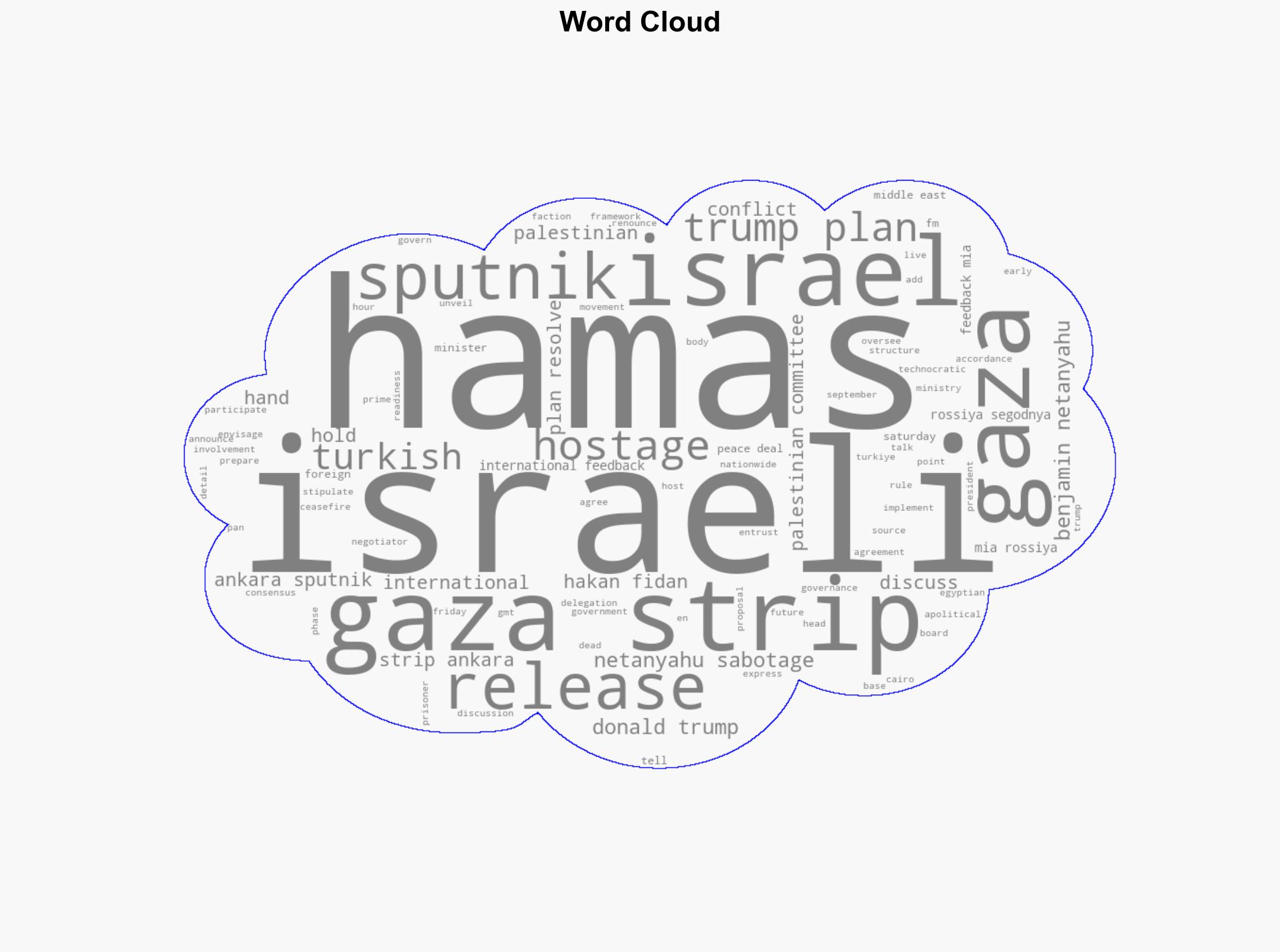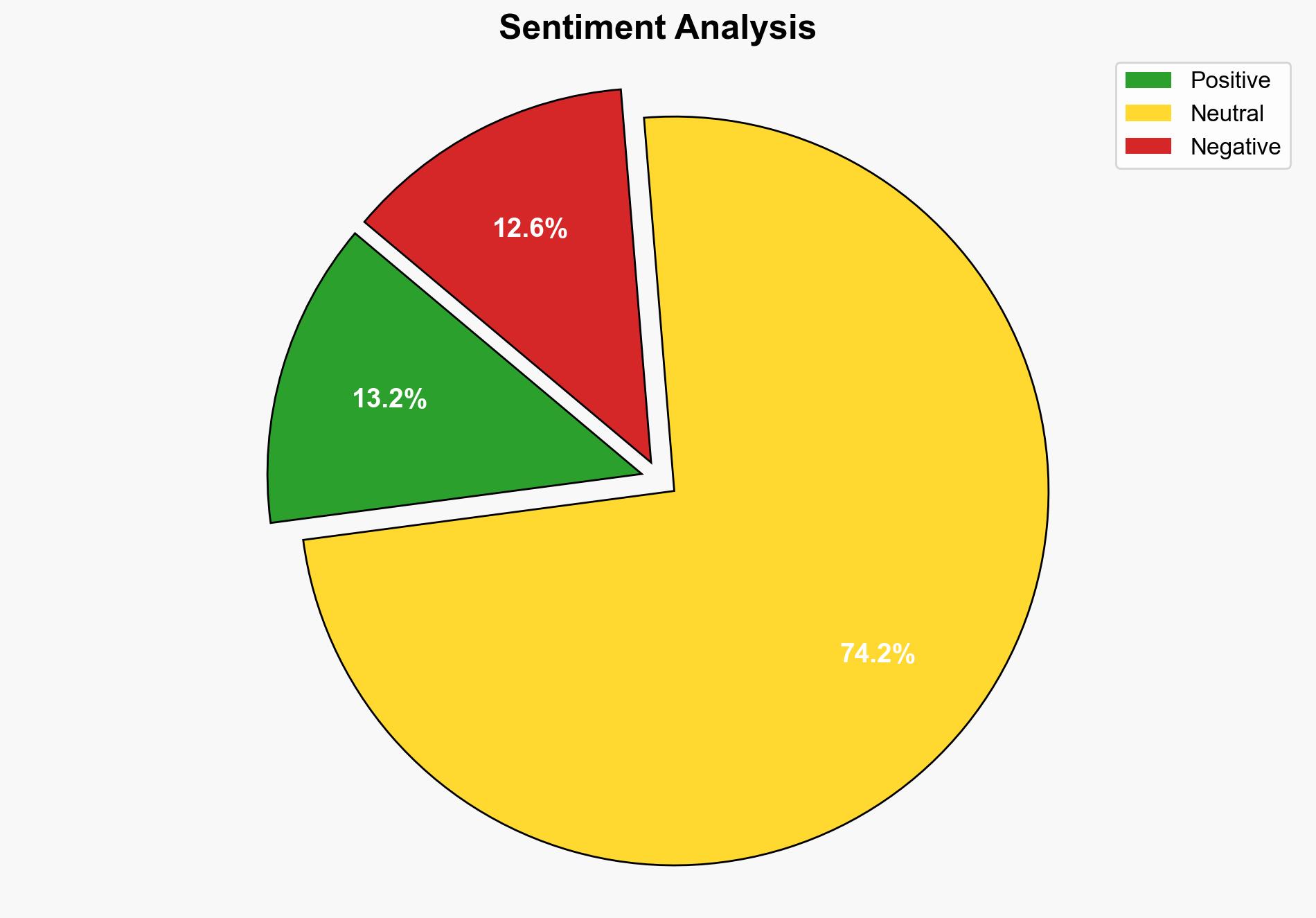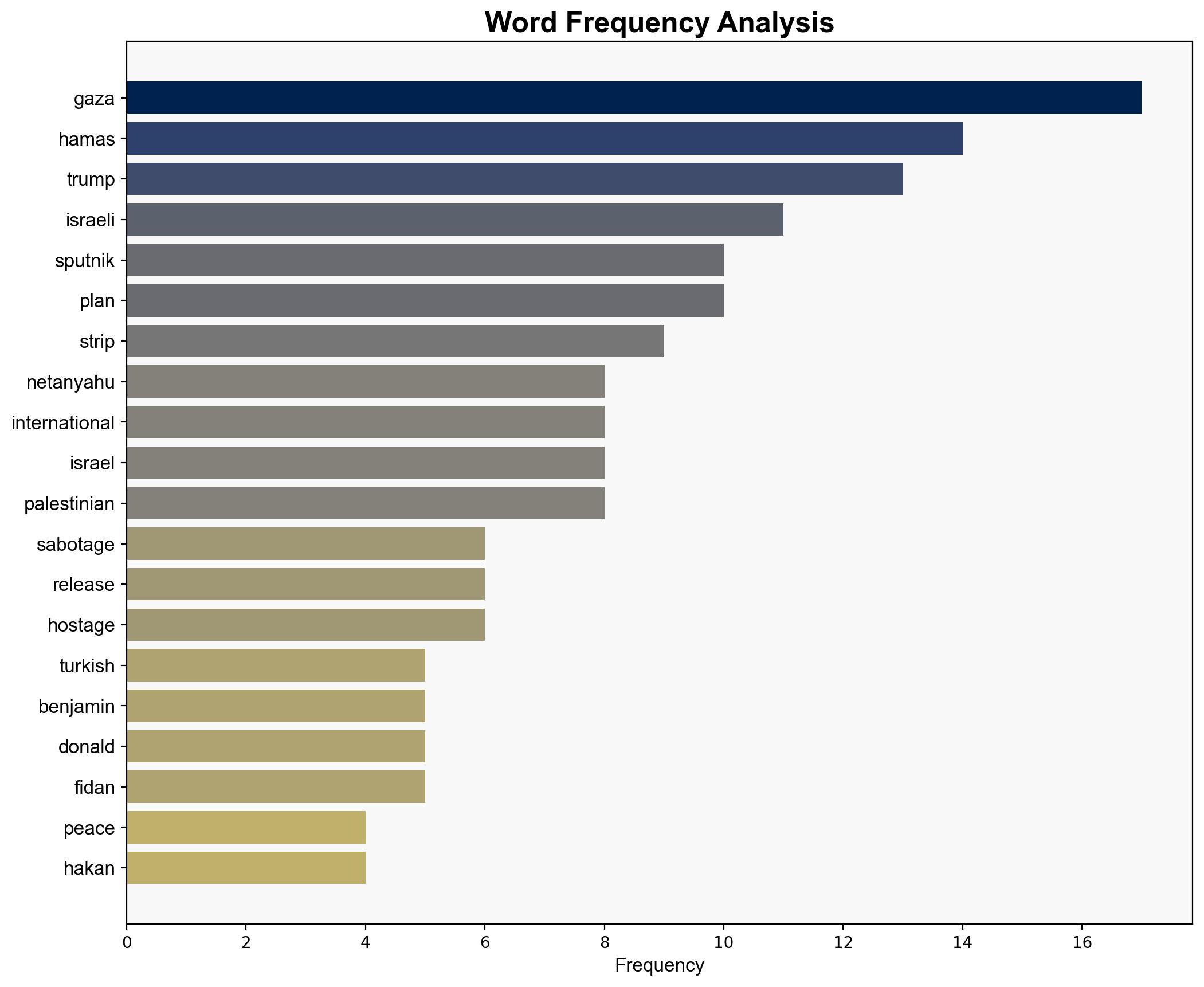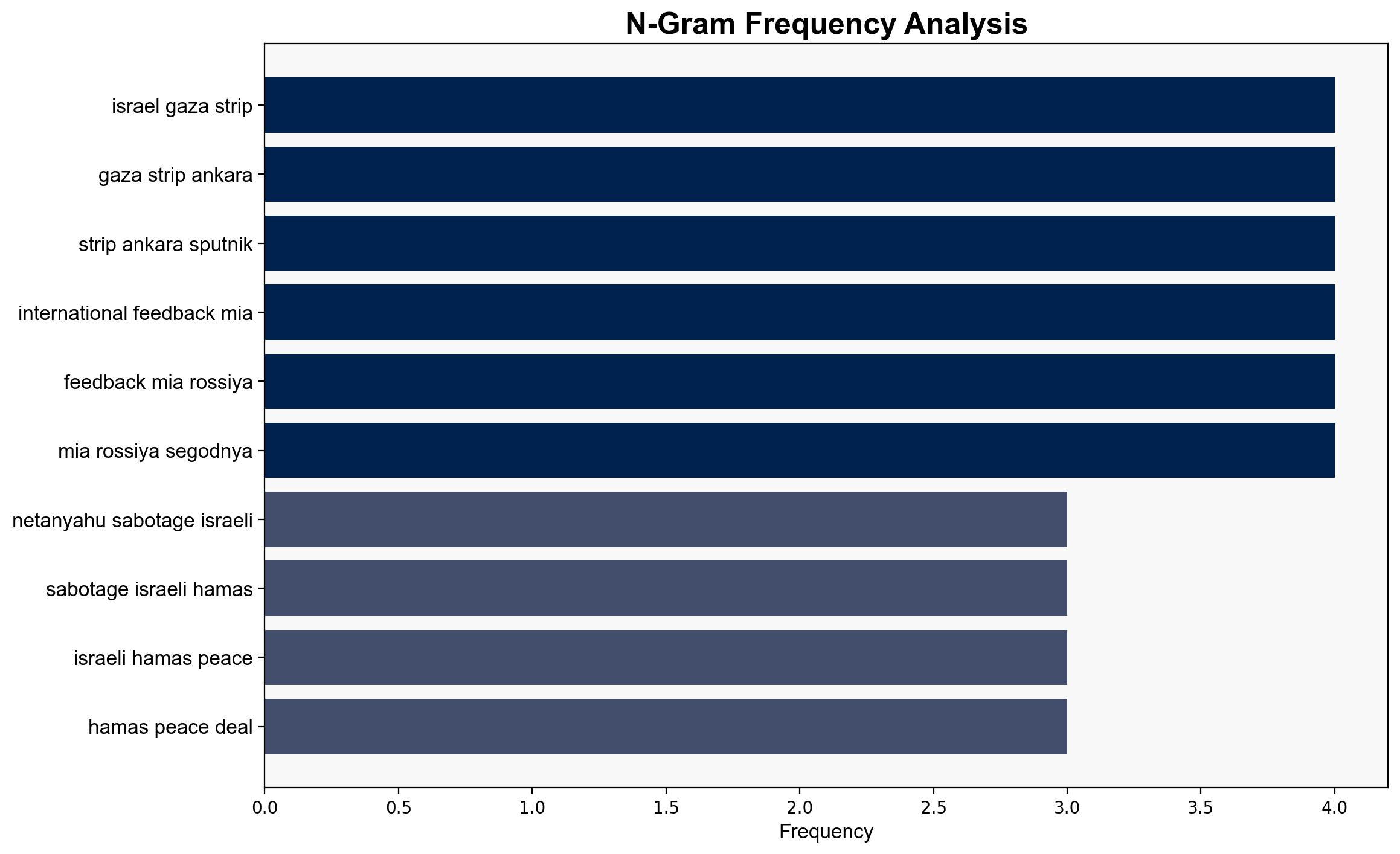Netanyahu Might Sabotage Israeli-Hamas Peace Deal – Turkish FM – Sputnikglobe.com
Published on: 2025-10-05
Intelligence Report: Netanyahu Might Sabotage Israeli-Hamas Peace Deal – Turkish FM – Sputnikglobe.com
1. BLUF (Bottom Line Up Front)
The most supported hypothesis is that Israeli Prime Minister Netanyahu might actively undermine the Israeli-Hamas peace deal due to political and strategic interests. Confidence in this assessment is moderate, given the complexity of regional dynamics and the source’s potential bias. Recommended action includes diplomatic engagement with regional stakeholders to ensure transparency and commitment to the peace process.
2. Competing Hypotheses
1. **Netanyahu Intends to Sabotage the Peace Deal**: Netanyahu may perceive the peace deal as a threat to his political standing or Israel’s security interests, leading him to undermine the agreement.
2. **Netanyahu Supports the Peace Deal but Faces Internal and External Challenges**: Netanyahu may genuinely support the peace deal but is constrained by domestic political pressures and regional security concerns, which could inadvertently lead to perceived sabotage.
Using Analysis of Competing Hypotheses (ACH), the first hypothesis is better supported by the Turkish Foreign Minister’s explicit claims and Netanyahu’s historical skepticism towards similar agreements. However, the second hypothesis cannot be dismissed due to the lack of direct evidence of sabotage intentions.
3. Key Assumptions and Red Flags
– **Assumptions**: It is assumed that Netanyahu has significant influence over the peace process and that his actions are primarily driven by political calculations.
– **Red Flags**: The source’s potential bias, given its origin from Sputnik, a Russian state media outlet, which may have geopolitical motivations in framing the narrative.
– **Inconsistent Data**: Lack of direct statements from Netanyahu or Israeli officials regarding intentions to sabotage the deal.
4. Implications and Strategic Risks
– **Geopolitical Risks**: Potential derailment of peace efforts could escalate tensions in the region, affecting broader Middle Eastern stability.
– **Economic Implications**: Prolonged conflict may impact regional trade and investment, particularly in sectors reliant on stability.
– **Psychological Impact**: Continued hostilities could exacerbate humanitarian crises, influencing public sentiment and international perceptions.
5. Recommendations and Outlook
- Engage in multilateral diplomacy to reinforce commitment to the peace process among all stakeholders.
- Monitor Israeli domestic politics for shifts that could impact Netanyahu’s stance on the peace deal.
- Scenario Projections:
- Best Case: Successful implementation of the peace deal with international support.
- Worst Case: Breakdown of negotiations leading to renewed conflict.
- Most Likely: Continued negotiations with intermittent setbacks due to political pressures.
6. Key Individuals and Entities
– Benjamin Netanyahu
– Hakan Fidan
– Donald Trump
– Hamas
– Egyptian Foreign Ministry
7. Thematic Tags
national security threats, geopolitical stability, Middle East peace process, diplomatic negotiations





